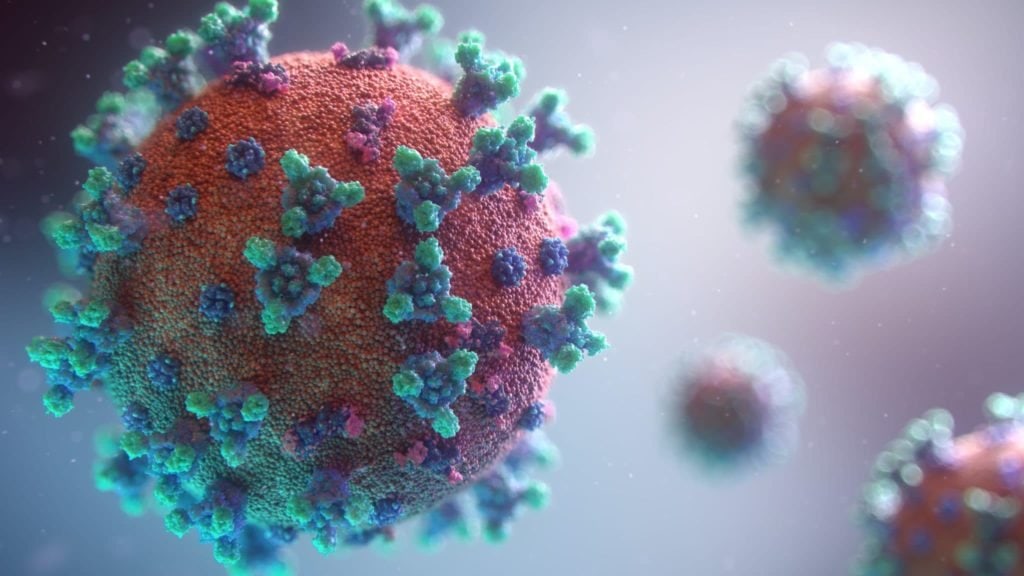COVID-19 Vaccines Trigger Autoimmune Graves’ Disease in Some Female Health Care Workers: Studies

According to the authors who wrote up the cases, “autoimmune/inflammatory syndrome induced by [vaccine] adjuvants (ASIA), described for the first time a decade ago, is triggered by several adjuvants (a substance that enhances the antigen-specific immune response) and includes the following conditions: Gulf War syndrome, siliconosis, macrophagic myofasciitis syndrome, and postvaccination phenomena.”
One of the victims described was a 28-year old medical resident with no history of autoimmune disorder. Three days after getting the Pfizer/BioNTech vaccine, “she developed anxiety, insomnia, palpitations, and a distal tremor. Her blood biochemistry was normal, except for the thyroid function test results.
Thyroid function tests revealed a decreased TSH level with elevated T4 and T3 and elevated antithyroid antibodies. She underwent thyroid scintigraphy that revealed diffuse toxic goiter [Graves’ disease].”
The other victim was a 40-year-old who health care worker who received the Pfizer/BioNTech vaccine, despite having been infected with COVID eight months earlier. Previous evaluations had ruled out autoimmune disorder.
“Two days [after vaccination] she developed nausea, vomiting, fatigue, insomnia, and palpitations. Physical examination revealed fine distal tremors, increased stretch reflexes, and arrhythmic heart sounds. Her blood biochemistry was unremarkable except for leukopenia and elevated liver enzymes,” reads the medical report.
According to a summary, “Vaccines have been shown to trigger an immune response that leads to a broad spectrum of autoimmune diseases, including autoimmune thyroid disease.
Our patients met the diagnostic criteria for ASIA [autoimmune/inflammatory syndrome induced by adjuvants]; they were exposed to an adjuvant (vaccine), and they developed clinical manifestations of thyroid hyperfunction within a few days, with the appearance of antithyroid antibodies, despite being healthy before vaccination.” The report reads:
“Adjuvants are an essential part of vaccines; they create an extended and lasting immune response. However, postvaccination phenomena have been described with autoimmune endocrine diseases (AIEDs), mostly after receiving human papillomavirus (HPV), influenza, and hepatitis B vaccines.AIED has been associated with different adjuvants (mineral oils, silicone implants, vaccines, etc.); the clinical spectrum includes Hashimoto’s thyroiditis, Graves’ disease (GD), thyroiditis, ovarian failure, and type 1 diabetes.”
The scientists write, “In addition, the spike glycoprotein of severe acute respiratory syndrome coronavirus 2 (SARS-CoV-2) vaccine shares a genetic similarity with a large heptapeptide human protein, so this is an additional factor that can trigger autoimmune disease (AID) after vaccination due to molecular mimicry.” The researchers conclude:
“Our patients met the diagnostic criteria for ASIA [autoimmune/inflammatory syndrome induced by (vaccine) adjuvants], they were previously healthy, were exposed to an external stimulus (vaccine), developed manifestations of AIEDs, and tested positive for autoantibodies. These cases represent an example of the diversity of clinical manifestations of vaccine-induced autoimmune conditions.”Two Cases of Graves’ Disease Following SARS-CoV-2 Vaccination: An Autoimmune/Inflammatory Syndrome Induced by Adjuvants. Read more here. Read the full study here.
The findings mirror the reporting in a published paper out of Turkey. In that report, two female doctors and a nurse, ages 34, 35, and 37, with no history of thyroid disease, were diagnosed with Graves’ disease four to seven days after Covid-19 vaccination with Coronavac (developed in China by Sinovac Life Sciences and not used in the U.S.). Two of the women were breastfeeding.
According to the authors, “[vaccine] adjuvants can trigger adverse immune reactions in genetically predisposed individuals, causing ASIA [autoimmune/inflammatory syndrome induced by (vaccine) adjuvants] syndrome. Since the first definition of ASIA syndrome in 2011, most reported cases have occurred following vaccines mainly directed to human papillomavirus, hepatitis B, and influenza.
Postvaccination ASIA syndrome might lead to endocrinopathies, but limited cases have been reported in the literature. These were cases of type 1 diabetes, premature ovarian failure, autoimmune thyroiditis, adrenal insufficiency, and subacute thyroiditis. Subacute thyroiditis has been described mostly after vaccines for human papillomavirus and influenza, and the symptoms have occurred 2 days to 2 months after vaccinations.”
The authors note: “Being in the postpartum period may be a facilitating factor for the development of ASIA syndrome after the SARS-CoV-2 vaccination.” Read more here. Read the full study here.
Reposted from: https://articles.mercola.com/sites/articles/archive/2024/02/19/covid-vaccines-trigger-autoimmune-graves-disease.aspx





.png)

Comments
Post a Comment